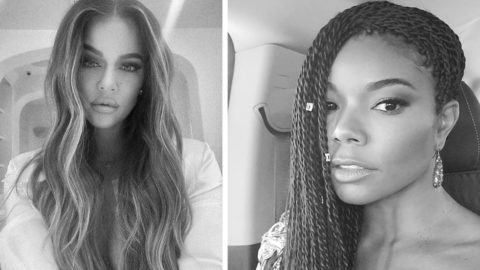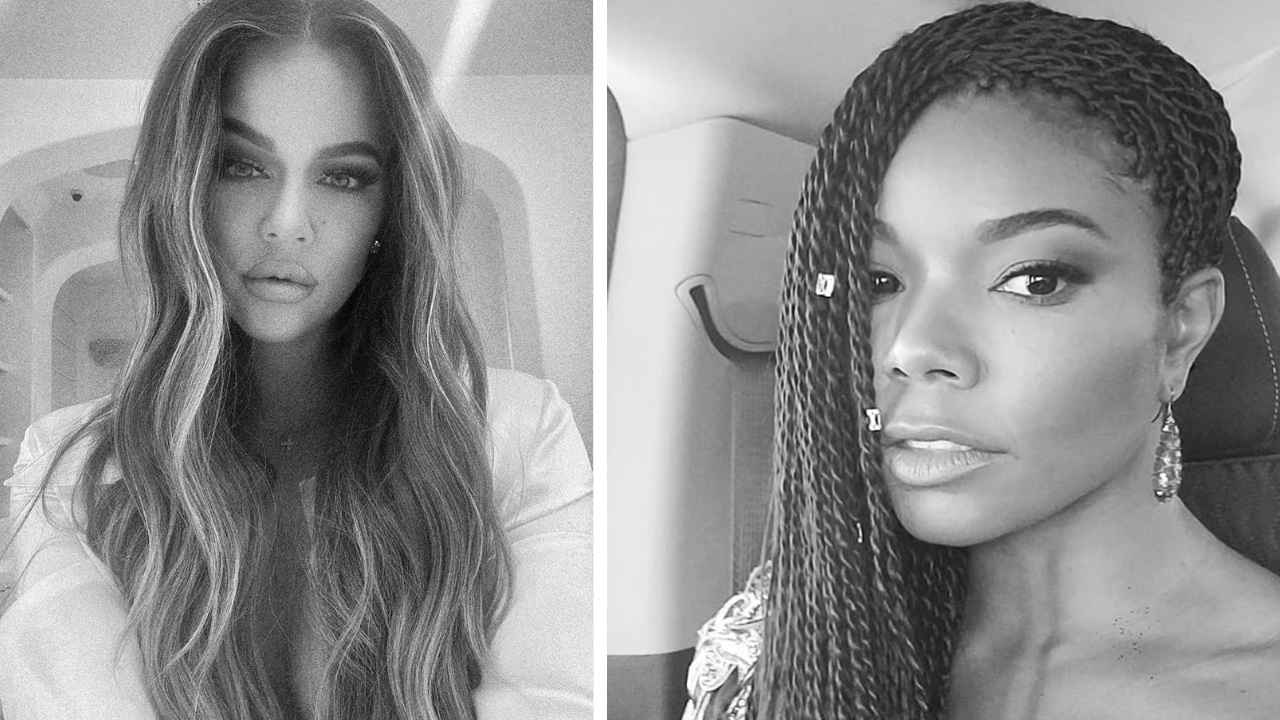What on Earth Is the Point of #ChallengeAccepted?
It's taken over our feeds and we're so confused

Over the past 48 hours, a strange but not entirely unfamiliar phenomenon has been taking over our social media feeds: black-and-white glamour selfies of women, captioned “Challenge accepted!” and then tagging a bunch of other users, always female. (A few lines thanking the inspirational women in your life is an optional extra.) Reese Witherspoon, Gabrielle Union, Eva Longoria and Khloe Kardashian were early adopters—although Jennifer Aniston, bless her, probably spoke for all of us when she hopped on the viral bandwagon the morning of July 28, writing: “Truth be told, I don’t really understand this #challengeaccepted thing…but who doesn’t love [a] good reason to support women! Soooo…. challenge accepted!”
She LOLs, but Jenn asks a good question: What is this challenge, where did it come from—and why is everyone from your old boss to your cousin to your best friend who you thought knew better doing it? The answer, TBH, is unclear—although that hasn’t stopped nearly six million people from using the hashtag “Women Supporting Women” on Instagram alone. And, listen, no shame if you participated—we’re living through incredibly tough times so of course we want to partake in silly internet things that make us feel better. But it’s important to examine the origin of this particular “challenge.” While it’s still unclear, some users have suggested that it might have been sparked by protests in Turkey last week, which saw large groups of women gathering to share their outrage over their government’s potential withdrawal from a landmark convention that combated violence against women, weeks after the murder of a young woman by her ex-boyfriend made their national headlines as yet another example of the country’s rising femicide rate. Elsewhere, #ChallengeAccepted been linked to a much less meaningful beginning: a Whatsapp message that proliferated, chain-letter style, where users “tagged” a recipient, telling them how “badass” they are, then urged them to post a black-and-white selfie on Instagram, tagging other women “who share my values and views of the world.” As the challenge spread, users were instructed to privately message 50 (?!) other women they admire, telling them how great they think they are. “Let’s ❤️ each other!,” the boilerplate concludes.
As for why it’s caught on with such velocity? As Internet challenges go, it’s almost lab-engineered in its potential to go viral. There’s the fact that it encourages you to post a shot of yourself feeling cute, not in the name of vanity, but of female empowerment. It perpetuates the kind of vaguely positive sentiment—who doesn’t want to lift up your fellow woman?—that these sorts of sensations gobble up. Inbuilt, also, is a kind of social peer pressure wrapped in virtue signalling: When you’re tagged in this challenge, your friend is backing you into a bit of a corner where, best case scenario, you either look rude if you don’t reciprocate or, worst case scenario, like you don’t want to #empower other women.
If that’s all beginning to sound very “Pseudo Feminist Rhetoric Circa 2016” to you, you’re not alone. Katherine Schwarzenegger, for instance, wrote that “instead of posting a picture of myself to ‘inspire’ other women,” she was opting to post an old video clip of her grandmother and founder of the Special Olympics, Eunice Kennedy Shriver. “I challenge all of you to instead of posting a black and white picture of yourself, post something of a woman who inspires you to make the world a better place.”
https://www.instagram.com/p/CDKE59PgeP9/
Some users have also noted that—much like fourth-wave feminism—the challenge has been particularly popular among mostly white, North American women, who, if the Turkish origin story is true, seem to have co-opted a grassroots movement in order to turn it into, as Toronto writer Anita Clarke phrased it in her IG Stories, “North American Girlboss narcissism.” Others have been calling for more concrete action, encouraging women to do tangible things—like mentor or donate, for instance—to lift up women, echoing the same frustrations many people felt around Summer 2020’s other viral moment, the Black Lives Matter “black out.” Constructive action over performative use of the “Moon” filter? That feels like a challenge we can all accept.









